COVID-19 updates for May 2021
May 31, 2021
Western to make vaccines mandatory for students in residence
With a planned full return to in-person classes in September, Western University is stepping up its health and safety measures.
Along with its affiliate university colleges, Brescia, Huron and King’s, Western will require students living in residence to have received at least their first dose of a COVID-19 vaccine when they arrive on campus in the fall. For students who are unable to receive that first dose, they will have a 14-day window following their move-in date to get vaccinated on campus.
“We want our community to be safe and healthy this fall,” said Western president Alan Shepard in a statement. “Ensuring our students in residence are vaccinated will go a long way toward making this happen.”
According to the Globe and Mail, Western is the first major university in Canada to create a vaccine requirement policy. The mandate comes after a challenging year of campus case counts – despite limiting residence capacity to 70 per cent over the last academic year, the university regularly saw outbreaks in residence buildings, sometimes dealing with outbreaks in several residences at a time.
The university stated that it’s encouraging all students, faculty and staff to get vaccinated as soon as possible and that it will be operating an on-campus vaccination clinic later in the summer to help community members receive first and second doses. It will also continue to require other health and safety measures, such as mask-wearing, physical distancing and enhanced cleaning and ventilation in buildings.
More information will be available for students planning on living in residence in the near future – such as details about requesting for accommodations on medical or other protected grounds under the Ontario Human Rights Code.
Dr. Shepard admitted that plans may have to change. This vaccine mandate will be subject to provincial and public health requirements, and dependent on Ontario’s vaccine supply. “If there is a need to change course,” he said, “we will.”
U of Lethbridge expands the ‘It’s Worth a Shot’ contest
The University of Lethbridge expanded its “It’s Worth a Shot” contest last week by offering faculty and staff who get vaccinated against COVID-19 the chance to win one of five reserved parking spots for one year, as well as memberships to a sport and wellness facility, and faculty of fine arts ticket packages.
The university originally launched the contest on May 10, offering students the chance to win one of nine grand prizes of full tuition, student administrative fees, fine arts access fee and sport and recreation services fee for the fall 2021 term.
“The health and safety of our community has been, and continues to be, our top priority,” said Mike Mahon, the university’s president and vice-chancellor. “We very much want to return to an in-person experience for our students this fall, and a high vaccination rate is key to getting there.”
According to a CTV News report, more than 2,000 students have entered the contest so far. To be eligible to win full tuition and fees for the fall semester, they need to receive a COVID-19 vaccination before 11:59 p.m. on Sept. 8. Winners for the tuition contest will be chosen on Sept. 10.
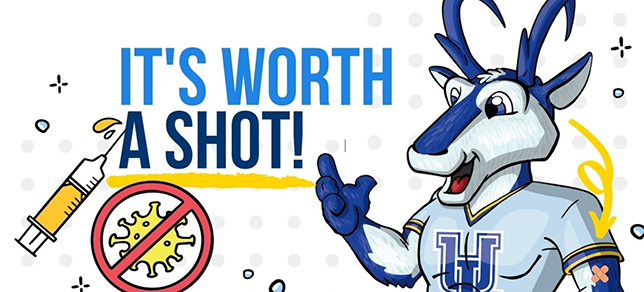
UBC launches rapid testing clinic
The University of British Columbia announced the launch of a 13-week COVID-19 rapid testing clinic for any students living in residence and other select groups on its Vancouver campus.
The university said its clinic, which launched May 26, is the first campus in Canada to use the Roche SARS-CoV-2 Rapid Antigen Test Kit. The clinic also includes a clinical trial component – researchers will study the viability of self-administered rapid screening tests for the general public.
“As part of this clinic, our research team is collecting data to determine the viability of self-administered rapid COVID-19 testing technology for potential use by the public across Canada,” said Sabrina Wong, the study’s lead researcher and UBC nursing and Centre for Health Services and Policy Research professor. “If this self-swab proves to be effective, it has the potential to be used in a number of settings and by the public across the country.”
UBC held a rapid testing pilot on its Vancouver campus from February to April this year, which saw more than 1,100 participants and identified a number of asymptomatic COVID-19 cases that the university said helped interrupt possible transmission. The pilot clinic was aimed at testing students and staff in first-year residences, while the new expanded clinic will be open to all student housing residents. The university stated that critical service employees, other students on campus and those attending in-person classes, such as faculty members, are also able to participate in the expanded clinic.
The university noted that participants must be asymptomatic to be eligible, and over the age of 16. Those who have been vaccinated can get tested as part of the clinic but will not be able to participate in the research study.
Cases on campus
McMaster University reported one new COVID-19 case on campus. The case, the university said, involves a student who tested positive on May 23 and was last on campus on May 19 in the Arthur N. Bourns Building. The building has been thoroughly cleaned and contract tracing is being managed by public health authorities, the university added.
The University of Waterloo confirmed one individual from its community has tested positive for COVID-19. The university said the individual is in self-isolation and did not have any known close contacts while on campus.
May 26, 2021
Pandemic was ‘final straw’ for Laurentian University
“There are a lot of things over the past 10 or even 15 years that have contributed to taking the university to where it was. But it really was the pandemic that was the final straw.” This was the message from Robert Haché to Laurentian University students last Thursday. The Laurentian president addressed students via a Zoom call, reports the CBC. He fielded questions for nearly an hour and addressed many concerns, including how much he knew about Laurentian’s financial situation before starting the job in 2019. “After I arrived, and as I learned more about the university … I began to discover the full extent of the financial challenges that the university has had,” he said. ” And a lot of that came when I brought in an external firm to help, help probe and help me understand the true state of the finances of the institution.”
The article also quotes Dr. Haché saying “we went from a situation where we had a balanced budget to, you know, a $10 million expense as a result of COVID-19.” However, he said he hopes that the university will emerge from creditor protection in late fall, and students should expect to be back on campus at that time, provided cases in Sudbury continue to decline.
Cases on campus
There are currently two cases being reported at York University, for the period ending May 25.
On May 20, the University of New Brunswick reported that members of its university community may have been exposed to a confirmed case of COVID-19. However, the university specified that the exposure is not related to the Magee House outbreak, which we reported on May 5.
Redeemer University has received notification of a confirmed positive COVID-19 case involving an employee on campus. The employee was last on campus May 7.
One new case is being reported at the St. George campus of the University of Toronto for the period ending on May 23.
For the seven-day period ending May 21, the University of Saskatchewan is reporting one positive COVID-19 case involving members of the university community.
More fall plans announced
Mount Royal University announced that 70 to 80 per cent of course sections will be in-person for their fall semester, with the rest online. The Calgary-based university said in a statement that employees will transition back to campus before students arrive, starting with managers and other leaders, and then staff and faculty. The back to campus plan includes expanded WiFi to make it easier for people to social distance outside, adjusting scheduling to reduce congestion in public spaces, and setting up an old library as well as Ross Glen Hall for students to do online courses. More details are expected on June 1.
Meanwhile, the University of Winnipeg is taking a more cautious route. In a statement, Jan Stewart, interim vice-president, academic, stated “while we are optimistic about in-person classes and greater personal interaction, our decisions will be aligned with public health guidance.” According to surveys conducted by the university, two thirds of staff and students want to return to campus in the fall. “That’s why we are developing our 2021-22 course calendar to provide a mix of both in-person activities and options for remote learning,” said Dr. Stewart. More details for the UWinnipeg fall semester will be released soon.
Updated mask use requirements on USask campus
The University of Saskatchewan started providing single-use 3-ply masks to all faculty, staff and students at no charge on May 21. The university said in a statement that it is introducing the enhanced measure due to “recent outbreaks on campus and the rising number of new COVID-19 variants of concern cases in the province.” The university added that “replacing the use of reusable cloth masks in indoor spaces and outdoor spaces when two or more people are together and cannot maintain a minimum of two meters of physical distance.” The measure will be in place until Aug. 31, 2021, when it will be re-evaluated.
More women enrolling in university during pandemic, according to StatsCan report
According to new Statistics Canada data, more young women are enrolling in postsecondary education during the pandemic, reports iPolitics. This comes amid “unprecedented youth unemployment” due to closures forced by COVID-19, the article states. The report found postsecondary attendance rose from 48 per cent to 53 per cent for women aged 17 to 19, and from 46 to 50 per cent for women aged 20 to 24. There were no significant changes among young men in any age category, the article states.
The report also found that the employment rate of students declined year over year, from 56 per cent to 49 per cent for young women as a result of the pandemic, while it remained stable for young men. This is attributed to fewer jobs in the accommodation and food-services sector.
Dancing the pandemic blues away
A new interdisciplinary study at the University of Calgary shows that older adults who are suffering from body issues and loneliness due to the pandemic can benefit from dance interventions. The study tests the effects of organized dance activities that are “designed to facilitate embodied social connections.” With the guidance of professional dancers, participants created movements and choreography that express their respective autobiographical memories of meeting and connecting with a new person.
“When they’re interacting with one another in this way, older adults begin to feel strength in these new connections […] Seeing those personal memories expressed by their fellow dancers is also very impactful,” says Pil Hansen, an associate professor in the U of C School of Creative and Performing Arts and lead author of the study, which was published in the journal Frontiers in Psychology.

Using cremation records to estimate pandemic death rate
Gemma Postill, a Western University undergraduate student, is helping provide Ontario’s chief coroner with real-time estimations of provincial mortality due to COVID-19 by data mining cremation records. “Cremation records accurately estimate provincial excess mortality on an interim basis while official records are being processed,” said Ms. Postill in a Western press release. Ms. Postill is a research assistant in Western’s computational convergence lab. By examining the electronic cremation records, she found a 12.8 per cent rise in the number of cremations in 2020 compared with the annual average between 2017 and 2019, when there was no change in the proportion of cremations versus traditional burials. Her findings support the understanding that the COVID-19 pandemic has impacted mortality rates in Ontario both directly and indirectly.
Using data from Statistics Canada, Ms. Postill was also able to confirm that the percentage of cremations has remained consistent during the pandemic. This strengthens the belief that cremation records provide an accurate, real-time estimate of all causes of mortality.
Carleton researchers find pandemic is stressing out working parents
A new report by Carleton University researchers finds that working parents are stressed and anxious due to the pandemic. “What is clear from the data we have collected is that the actions taken by governments and policy-makers throughout the pandemic have a notable impact on the mental health of those directly impacted,” says Linda Duxbury, co-author of Work, Family, Life During a Pandemic. “Any time schools or daycares are closed, we see an immediate increase in the stress and anxiety levels of working parents.” The report also found that stress and anxiety were not constant – they fluctuated over time. “Our research also suggests that […] women’s average stress and anxiety levels seem to be higher than men’s,” says co-author Anita Grace, a Carleton postdoctoral fellow.
Athabasca donates unused convocation flowers to seniors
When Athabasca University had to cancel their online convocation ceremony due to public health measures, organizers had a problem: what to do with all the flowers they had ordered to adorn the video feed. Luckily, they were able to brighten the day for residents of the Shepherd’s Care Foundation by donating the flowers to the organization.
The flowers were originally prepared for the recording of our online convocation ceremonies. Although the recording was cancelled due to public-health measures, we are pleased they can brighten the lives of folks who’ve had an especially difficult time during the pandemic! 💐 https://t.co/GStnM1W9oa
— Athabasca University (@AthabascaU) May 23, 2021
May 19, 2021
Two more fall plan announcements
“As conditions improve throughout the spring and summer, it is expected that some of the more restrictive public health measures affecting our personal and professional lives will be relaxed while other prevention and control measures remain in place. Given these assumptions, we feel optimistic that UBC will be able to safely welcome our students, faculty and staff back to campus.” This was the message from University of British Columbia president Santa Ono to the UBC community on May 17. The university will be relying on the COVID-19 Return-to-Campus Primer, released by the B.C. government in early May to guide their back to campus plans. Dr. Ono also stated that “faculties are currently finalizing the fall course schedules, assuming primarily on-campus instruction, with selected flexible options for continuity of learning where feasible, ahead of the course registration periods beginning in June.”
Meanwhile, The King’s University in Edmonton is planning to return to normal operations by September 2021, according to a statement on its website. The university said some enhanced safety measures may remain in effect as it will follow Alberta Health Services guidelines and recommendations in all circumstances.
Cases continue to dwindle on campus
The University of Toronto is reporting two new cases on its St. George campus.
Two new cases are being reported by the University of Waterloo. The individuals are in self-isolation and officials have been in touch with all known close contacts.
The University of Ottawa is reporting just one case on its campus.
SFU researchers map out COVID-19 impact
Researchers at Simon Fraser University have created a map outlining how the pandemic’s long-term health impacts will be distributed in communities across British Columbia. The map draws on data from Statistics Canada and looks at five factors contributing to secondary health impacts: housing insecurity, job insecurity, occupational burnout, loneliness/isolation and educational disruption. According to a press release, these five factors were chosen because of their direct connection to the types of economic, social and policy measures put in place during the pandemic, such as business closures, physical distancing and shifting to online learning. The map can help to better understand where policy and public health efforts should be focused in the later stages of the COVID-19 pandemic, notes Valorie Crooks, an SFU geography professor and one of the lead researchers on the project.
Are vaccine passports ethical?
CTV News is reporting that a new study is being conducted by University of Guelph researchers on the ethics behind whether COVID-19 immunity passports would help minimize the spread of the disease in Ontario. While certification would help loosen restrictions in the province says Andrew Bailey, a U of G philosophy professor and leader of the study, “there are some potential problems when it comes to the idea of a passport, and people looking for a return to normalcy without getting vaccinated might resort to dangerous measures.”
He says reducing the divide between those who are vaccine-hesitant and those who are not is one of the biggest challenges in making immunity passports realistic. He also admits that more research needs to be done to determine the value of immunity passports and that for them to work, everyone needs to have equal access to vaccines.
Opioid-related deaths surging during pandemic, report finds
A new report, Changing Circumstances Surrounding Opioid-Related Deaths in Ontario during the COVID-19 Pandemic, shows that opioid-related deaths surged in Ontario after the COVID-19 pandemic hit in 2020, with a total of 2,050 people dying between the months of March and December, reports CBC News. The report also found that one in six of the deaths occurred among people experiencing homelessness.
One of the authors of the report, University of Victoria professor Gillian Kolla, says an action plan is needed to address the problem. “Unfortunately, Ontario has lagged behind in terms of an evidence-based public health response to the overdose crisis.” The article states that the researchers behind the report also found that the surge in deaths is due to an unregulated drug supply that is increasingly toxic; a limited access to supports, health-care services and community programs for people who use drugs; greater isolation as a result of public health measures to curb the spread of COVID-19; and shifting patterns of substance use that can be attributed to a rise in anxiety during the pandemic.
Researchers say the number of lives lost to opioid-related overdoses during the pandemic shows that the overdose crisis is getting worse, it is affecting marginalized people, including unhoused and unemployed people, and it requires an immediate and coordinated response from all levels of government.
1/7 NEW report from ODPRN, @PublicHealthON and the Office of the Chief Coroner shows #opioid-related deaths surged during the pandemic https://t.co/xqmDY8QZs3
— ODPRN (@ODPRN_Research) May 19, 2021
UNBC hosts COVID-themed virtual art exhibit
The University of Northern British Columbia’s arts council is hosting a new virtual exhibit, Creativity & the COVID-19 Cocoon, from May 17 to June 18. “This exhibition celebrates the wonderful hobbies, crafts, and creative works that bring us comfort and joy in the face of uncertainty,” states the website. “During these difficult times people have turned to the arts for inspiration, enjoyment, and as a means of processing our changed world.”

May 17, 2021
COVID-19 cases on campus
McMaster confirmed a new case of COVID-19 on campus. A staff member, who was last on campus in the John Hodgins Engineering Building on May 12, tested positive on May 14. The university says all areas of the building have been thoroughly cleaned and that public health authorities are conducting any required contact tracing.
Also on May 14, Trent University reported that an employee tested positive for COVID-19. The individual was last on Trent’s Peterborough campus on March 13 and is currently in self isolation.
U of Waterloo announces its fall plans
The University of Waterloo is planning a return to campus in the fall with classes at 50 per cent capacity. The CBC reported that in a virtual town hall, president Feridun Hamdullahpur said “the whole country is experiencing a very positive rollout of vaccines” and that the university is “hopeful that as the government indicated many times, many of us will have the opportunity to be vaccinated.”
The university will offer as many classes as it can online to accommodate students who are not able to attend in-person. It will also have academic advisors available to help guide students through their virtual studies.
Western switches proctoring software due to privacy concerns
Western University will be switching its remote exam proctoring software this summer. According to Global News, Western has been using Proctortrack since it introduced remote proctoring after the COVID-19 pandemic moved in-person classes, and in-person tests and exams, online.
The software works to prevent academic offences by assessing a computer’s connected device list, desktop screen, web cameras and microphone. It also tracks and stores biometric data, including face scans and keystroke, audio and video data.
It’s a system that was “long-condemned by students,” reported the Western Gazette. In September, more than 10,000 students signed a petition urging the university to end its relationship with Proctortrack, based on concerns the software violated their privacy.
In an email to students, the university said it has chosen Proctorio to replace Proctortrack “because it addresses the privacy and security needs of our students while meeting the technical requirements to integrate with Western’s systems.” However, some say Proctorio is just as invasive as the previous program.
“It’s still invasive, so it’s disheartening to see Western not to try and find something new but instead, switch to a new one,” Jack Burke, the co-president of Western’s Policy Pitch Association told Global News. Mr. Burke has experience with Proctorio; the software was used when he took his Law School Admission Test exam. “It monitors your whole room, it’s recording your sound the whole time and you have to move your camera around to show your setting.”
Proctorio itself is facing student push-back. According to the Gazette, the University of British Columbia banned the software in March following students’ concerns about privacy. The software itself uses facial tracking and can monitor when a user looks away from the screen, leaves the room or if there are other people present. Western has said Proctorio will not use facial recognition or track eye movements.
Western has also said that it is continuing its agreement with Protortrack in case there are any problems with Proctorio, such as an unexpected outage.
May 12, 2021
Vaccinated U of Lethbridge students could get free fall tuition
The University of Lethbridge is launching a unique contest for its students: everyone who has received their COVID-19 vaccination will be eligible to win one of nine grand prizes of full tuition for the fall 2021 semester. The “It’s Worth a Shot!” contest will award seven prizes to undergraduate students at the Lethbridge campus, one to a student at the university’s Calgary campus, and one to a graduate student. Additional prizes include $500 gift certificates for the university’s bookstore, $20 Bridgebucks prizes and branded socks. The draw for the contest will take place Sept. 10. and winners will have to show proof of receiving at least one COVID-19 vaccination prior to Sept. 8.
The university also plans on having a contest for its faculty and staff members, with details to be shared with the internal community in the coming weeks.

Fall plans continue to be unveiled
The University of Ottawa has released more details for its return to campus this fall. The university plans to have deliver “30-50 per cent of courses in person or in hybrid formats, with the rest being offered in online and distance formats,” stated a release. Residences will also be open, and a whole range of on-campus student activities for both the fall and winter terms are planned. Research activities are also expected to be back to full capacity.
University of Saskatchewan president Peter Stoicheff has released more details regarding back to campus plans. “Although COVID-19 case counts are currently high in Saskatchewan, we remain confident that, with the rapid deployment of vaccines and the support of the Ministry of Health and the Chief Medical Health Officer, our continued planning for a more open fall term can proceed,” he stated in a press release.
“The fall term should be considered ‘transitional’ as we will continue to offer some classes remotely. We will likely not complete our full transition out of pandemic operations until at least January 2022, at the beginning of winter term.” He also stated that student residences will be more fully opened to safely accommodate the increase in students on campus. “It is expected that administrative staff who directly support teaching, learning, and research, and associated student services, will return to campus this fall if their on-campus presence is necessary.” Additional info regarding the full roll-out will be released in the coming weeks.
Laurentian University also plans to have face-to-face activities and in-person course delivery back on campus this fall. Important factors include the significance of the in-person student experience as well as the requirements related to hands-on learning. “The university will also continue to deliver a multitude of academic programs and courses online, allowing students from around the world to attend Laurentian virtually,” stated the release.
Cases on campus
The University of Guelph is reporting one new case on its campus.
There are six new cases being reported at York University.
For the seven-day period ending May 6, the University of Saskatchewan has been informed of six positive cases involving members of the university community.
The University of Waterloo is reporting one new case on its campus. The individual is in self-isolation and did not have any known close contacts while on the campus.
#ThisIsOurShotCA
What do Ryan Reynolds, Chris Hadfield, Hayley Wickenheiser and Michael Bublé have in common besides being Canadian? They are all spokespeople for: #ThisIsOurShotCA, a vaccine awareness campaign started by the 19 to Zero coalition at the University of Calgary. “When someone you know and trust gets the vaccine, it increases confidence in people who are maybe on the fence. Those conversations are probably the most effective thing we can do,” said Heather Bensler, a nursing instructor at U of Calgary who works with 19 to Zero.
But the campaign isn’t just relying on celebrities. “Every friend I have is posting photos of themselves getting the vaccine. When we share that, we build a sense of solidarity, and that has an impact,” said Ms. Bensler in a U of Calgary statement.
The ultimate goal of 19 to Zero is to shift public perceptions around COVID-19 behaviours and vaccination. Its contributors have provided in-depth research, created educational tools for health-care professionals, done community outreach, and engaged governments. #ThisIsOurShotCA is just one of its many grassroots initiatives.

New UBC survey shows 77 per cent of adults are experiencing negative emotions due to the pandemic
A new mental health survey conducted by University of British Columbia researchers in partnership with the Canadian Mental Health Association shows that eight out of 10 adults are struggling because of the COVID-19 pandemic. The five most common emotional responses were “worried or anxious,” “bored,” “stressed,” “lonely or isolated” and “sad”, says lead researcher Emily Jenkins. Dr. Jenkins is a professor of nursing at UBC who studies mental health and substance use. “There has been significant loss – of loved ones, of connection, of feelings of security. This can contribute to very challenging emotions and it is important to acknowledge and process,” said Dr. Jenkins in a UBC press release.
The survey also found that overall, a large number of Canadians (41 per cent) report their mental health has declined since the onset of the pandemic, compared to 38 pe rcent in the spring and 40 per cent in the fall of last year. Also, consistent with the first and second rounds of data, the decline is more pronounced in those who are unemployed due to COVID-19 (61 per cent), younger aged 18-24 (50 per cent), students (48 per cent), those who identify as LGBTQ2+ (46 per cent) those with a pre-existing mental health condition (54 per cent) and those with a disability (47 per cent).
The data for the survey was compiled in late January 2021 using a representative sample of 3,037 people ages 18 and older living in Canada. See a complete summary of the findings.
York researchers test various materials for mask filters
A team of York University researchers tested several materials to see which would be more effective to use as a middle or additional layer in cloth-based masks to enhance protection and reduce the risk of transmission of COVID-19. The materials tested included prima cotton, woven cotton, flannel and microfiber sheets, sew-in interfacing, polypropylene, baby wipes and Swiffer wipes. They also tested various industrial wipes and rayon/polyester gauze, as well as two different surgical masks, which provided a benchmark for their results.
“Overall, we found that polypropylenes, Swiffer and the rayon/polyester blends, such a non-woven gauze, provided the highest filtration efficiency and breathability,” says Leigh Crilley, a postdoctoral fellow in the faculty of science at York. The team’s findings were recently published in the journal Environmental Science: Nano.
Nurses, we salute you
It’s National Nursing Week and several universities have been highlighting their nursing programs, students and faculty on Twitter using a variety of hashtags like #NationalNursesWeek, #NationalNursingWeek and #NursingWeek2021. This year’s theme for the week is #WeAnswertheCall, to show the many roles that nurses play in a patient’s health-care journey. “The pandemic brought to light the courage and commitment that nurses work under every day and showed the important role that nurses play in the community,” states the Canadian Nurses Association website.
https://www.youtube.com/watch?v=E7la9pR2geA
Favourite COVID-related tweet this week
NO… the COVID-19 vaccines 💉don’t contain tracking devices, mercury, or nano-bots, but wouldn’t all three make for a COOL MOVIE!?!?! #TrustScience
Let’s keep our #UofRegina campus safe. #TakeYourBestShot and share your vaccine selfie with us! pic.twitter.com/4sGTgqVVW0
— University of Regina (@UofRegina) May 10, 2021
May 10, 2021
Will universities implement vaccine requirements?
While universities in the United States are requiring anyone coming to campus in the fall to be fully vaccinated, it doesn’t look like Canadian universities are interested in making proof of immunization mandatory for the campus community. According to the Canadian Press, some schools are undecided, but the University of British Columbia, the University of Alberta and McGill University have indicated proof of vaccination will not be part of the fall term.
A McGill spokesperson told CP that the university doesn’t “anticipate a requirement to show proof of vaccination before coming to campus in the fall,” and that the “university is using an approach to planning that will create flexibility so that we will be able to adapt if we need to.” UBC has pointed to government guidance in its explanation and expects all adults will be eligible to receive a vaccine by the fall, including international students. The University of Alberta has said that “at this point,” employees, students, contractors and visitors do not need proof of immunization to be on campus.
But Isaac Bogoch, an infectious disease expert and faculty member at the University of Toronto, says it would be “very reasonable” to make vaccines mandatory on campus. In an interview with Global News, Dr. Bogoch said there is a lot of precedent for something like this. “You can’t send kids to school without evidence of measles vaccination,” he said. “This may be another vaccine where many schools will decide to have proof of vaccination.”
The idea of “vaccine passports” — some sort of proof of vaccination — has become a regular part of the COVID-19 conversation, with countries working to establish a common documentation requirement for international travel. In fact, the Canadian government is looking into the issue and working with other G20 countries, “hoping to align with allied countries,” Prime Minister Justin Trudeau said.
Cases on campus
McMaster University confirmed two new COVID-19 cases on campus. One of these cases involves a staff member who tested positive on May 3 and was last on campus May 1 in the Michael DeGroote Centre for Learning. The second case involves an employee who works for an external organization. This person tested positive on May 3 and was last on campus April 28 at the McMaster Innovation Park. The university says all relevant areas of campus buildings have been thoroughly cleaned and public health authorities are doing any required contract tracing.
OCAD U reported its first case of COVID-19 on campus. The individual, who was last on campus on April 23, informed the university that a member of their family had tested positive on April 26 and that they themselves had tested positive on April 28. The university says the individual is self-isolating at home. Contract tracing shows the individual came into close contact with one other person on campus, who is now also self-isolating at home for 14 days.
Fall plans
Universities continue to announce their intentions for the fall — and once again, these plans are inching toward a full return to campus with some campus activity and in-person learning on the table for September.
Wilfrid Laurier University suggests the “best case scenario” will be a return to 50 per cent capacity in classrooms, with mandatory mask requirements likely still in place. Classes will either be taught remotely or in-person and at the end of the fall term, each class will finish the way they started. The university hopes to return to its regular operations in January 2022.
McMaster will be sharing its decisions about the fall term throughout the spring and summer “as the status of the fall becomes clearer.” For now, the university is focusing its planning on providing safe in-person experiences in the fall, including more in-person learning opportunities, student services, small group study and access to the library. The university also says it will put its community’s safety first when making decisions and will consistently update its existing safety protocols based on public health guidelines and expert advice.
OCAD U is planning for a partial return to campus in the fall. In a message to the university community, OCAD U’s president, Ana Serrano, said that lectures will mostly take place online, but students will be able to do the hands-on parts of their courses on campus. There will also be many courses offered fully online. Depending on public health guidelines, there may still be the requirements of wearing masks, physical distancing and limits on capacity.
The Nova Scotia provincial government is working with university administrators on a plan to try to “bring the kids back to campus in the fall,” reported the CBC. Duff Montgomerie, the province’s deputy minister of advanced education, said the plan is being reviewed and will need approval from Nova Scotia’s chief medical officer of health.
Mr. Montgomerie praised Acadia University and St. Francis Xavier University for their efforts to provide a safe on-campus experience this year. “We were so impressed with the hard work, the leadership at Acadia and St. FX did with their community,” Mr. Montgomerie said. “Presidents were actually going door to door, that [students] understood their responsibilities, that they would make sure that the kids quarantined and so on, and they really understood to keep the community safe.” He added that if students have been vaccinated by the fall “and the epidemiology is where we want it to be, then you may have two to a room in residences and more normal food service.”
Université Sainte-Anne is planning a return to its campuses in the fall, while maintaining a “flexible posture in the face of pandemic-related uncertainty.” Course offerings will be planned based on a hybrid model so students can take them in-person or remotely. The university noted that it may be required for some activities, such as lab sessions, to take place on campus again.
May 5, 2021
Alberta tightens restrictions
In an effort to slow a spike of COVID-19 cases, the Alberta government introduced new public health restrictions, including moving all postsecondary learning online, starting Friday. Late Tuesday evening, the University of Alberta put out a statement, saying it would pause all in-person classes, labs, and activities on all campuses for the day, May 5, as the Public Health Response Team and university managers evaluate the full impacts of the new restrictions. Meanwhile, the University of Calgary announced they would be suspending in-person classes for at least three weeks. MacEwan University made a similar announcement, saying any students “who have in-person classes or labs scheduled should not come to campus. Instructors will be in contact with students to confirm next steps in course delivery.”
Find your vaccine by texting
A University of Toronto alumnus, Zain Manji, has created a texting service that allows both Ontarians and British Columbians to instantly receive a list of the three nearest vaccine clinics to them. All they have to do is text their postal code to 1-833-356-1683, reports the Toronto Star, and they will receive the location names, addresses, phone numbers and websites of provincially approved vaccination sites, including pharmacies and clinics. After launching last Friday, more than 85,000 people texted in over the weekend, Mr. Manji, a former U of T computer science and economics student, told the Star. He also told the CBC that in B.C., information on vaccine locations is currently only available for 45 out of the 192 postal codes in the province. “So I would say B.C. is probably a little bit behind on their rollout compared to Ontario. But the service does work for B.C. so anyone in B.C. can try to text it and try to find a location.”
British Columbia! 🇨🇦
Try texting +1 (833) 356-1683 with your postal code, you’ll get an instant reply with nearby vaccination sites 💉
Over 85,000 people in Ontario have already texted the phone number and found vaccine locations, and now you can too ❤️
Spread the word #Lazer
— Zain Manji (@ZainManji) May 4, 2021
Vaccines won’t be mandatory at URegina
“In preparation for safely welcoming as many people back to campus as we are able, we strongly encourage all members of the campus community to receive their COVID-19 vaccination as they become eligible to do so,” University of Regina spokesperson Mindy Ellis wrote in an emailed statement to the CBC. This comes after the University of Saskatchewan faculty association called for mandatory vaccinations for students who want to come to their campus. “[…] attempting to make vaccination mandatory for all those coming to our [URegina] campus this fall would present many legal and logistical challenges,” said Ms. Ellis.
Get a closer look at the B.1.1.7 variant
A team of University of British Columbia researchers have discovered what the N501Y mutation on the SARS-CoV-2 spike protein looks like at the molecular level. This mutation is responsible for the rapid spread of the B.1.1.7 variant of COVID-19 (first detected in the U.K). The pictures have been taken at a near-atomic level and show the localized placement of the mutation allows it to enter human cells more easily. The team, led by Sriram Subramaniam, a biochemistry and molecular biology professor at UBC, recently published their findings in PLOS Biology.
“Our analysis revealed that even though the N501Y mutant can bind and enter our cells more readily, it can still be neutralized by antibodies that block the entry of the unmutated version of the virus into cells,” says a statement put out by UBC. “This is an important observation and adds to the growing body of evidence that the majority of antibodies elicited in our immune system by existing vaccines are likely to remain effective in protecting us against the B1.1.7 variant.”
The team is also looking at other variants, including P.1 (Brazilian), B.1.351 (South African), B.1.427/B.1.429 (Californian) and B.1.617 (Indian), to understand how these mutations alter how the spike protein interacts with neutralizing antibodies.

Dalhousie offers to help NS with testing backlog
Nova Scotia is currently experiencing a spike in COVID-19 cases and is having trouble keeping up with analyzing PCR tests, which are longer but more accurate than rapid tests. Global News is reporting that the province has a backlog of at least 45,000 PCR tests to process. One Dalhousie University professor, Paola Marignani, is offering her lab to help process some of the tests. She says she and her team have the capacity to conduct the PCR reactions to identify COVID-19 and could perform at least 1,000 tests a day. But, in a statement to Global, the microbiology lab that conducts all of the province’s COVID tests said “clinical testing requires accredited laboratories with licensed, certified staff performing validated testing under strict quality control parameters,” and that they are “unaware of any laboratory at Dalhousie that fits this criteria.” However, Tim Mailman, who heads the microbiology lab, also says he is “open to hearing from faculty who have a plan to help.”
NACI creates confusion on vaccines
On Monday, the National Advisory Committee on Immunization, stated that Canadians who are less likely to contract COVID-19 may want to wait until a Pfizer-BioNTech or Moderna vaccine is available, reports the CBC. The statement sparked an outcry from health experts across the country, as it contradicts what many have been saying, which is get whatever vaccine is offered to you.
David Naylor, co-chair of the national COVID-19 Immunity Task Force is quoted in the CBC article: “I really worry about a situation where Canada will be the only country in the world where we’ve managed to create buyer’s remorse about a vaccine we’ve provided free of charge to Canadians to protect them.”
NACI, an independent body of experts that makes recommendations on the use of newly approved vaccines, claims it was simply stating that the Pfizer and Moderna products don’t carry the same risk of very rare, but serious, blood clots like the AstraZenenca and the Johnson & Johnson vaccines.
Timothy Caufield, Canada Research Chair in health law and policy at the University of Alberta, is also quoted in the article, saying NACI is creating a hierarchy with respect to vaccines and not focusing enough on the profound benefit that the vaccines have for the general public, for hitting herd immunity and for decreasing community spread.
“I am frustrated by the messaging that has emanated from the committee, especially right now when there’s jurisdictions like Alberta and Ontario that are really struggling.”
A day after NACI’s statement, Prime Minister Justin Trudeau came out and said that all vaccines approved for use in this country are safe and effective. “The impacts of catching COVID are far greater and far deadlier, as we’ve seen across the country, than potential side effects. Let me remind everyone that every vaccine administered in Canada is safe and effective, as evaluated by Health Canada.”
‘Preferred vaccines’ messaging from federal panel sparks concern https://t.co/7ZWUYG2i35 by @markgollom@zchagla: “…advice given in a vacuum of not really looking at the world that it is today.”
Me: it matters if poor messaging mean 2 or 3% of people don’t get the vaccine.
— Timothy Caulfield (@CaulfieldTim) May 5, 2021
UBC prof pens pandemic thriller
Daniel Kalla, a Vancouver ER doctor and University of British Columbia clinical associate professor, has written a new book about vaccine hesitancy and misinformation. The book, Lost Immunity, came out yesterday, reports the CBC. It centres on a dangerous bacteria causing deadly outbreaks around the world, and a local public health officer who asks a pharmaceutical company working on a vaccine to release it early. Even though he started writing the book before the COVID-19 pandemic, “I knew vaccine and vaccine hesitancy would be a big issue […] This is a very pro-vaccine book and a cautionary tale about vaccine hesitancy, but I’m not trying to vilify the vaccine hesitant.”
Dr. Kalla’s previous book, The Last High, was released last year and focused on the opioid crisis. So far, he has written 12 thrillers.
Thrilled that my cautionary tale about the dangers of vaccine hesitancy hits bookstores today!https://t.co/T5WvFgdbdj
— Daniel Kalla (@DanielKalla) May 4, 2021
Cases on campus
For the seven-day period ending Friday, April 30, the University of Saskatchewan is reporting 12 cases of COVID-19. This includes eight cases in the Western College of Veterinary Medicine (WCVM). The positive cases within the WCVM have resulted in the Veterinary Medical Centre accepting emergency cases only for its small and large animal clinics until further notice.
Three new cases are being reported at the Fort Garry campus of the University of Manitoba. Since the start of the academic year, there have been 74 positive cases at U of Manitoba.
The outbreak we previously reported on at the University of New Brunswick has increased to eight positive cases, reports Global News. These occurred at the Magee House residence. UNB reports that access to both Magee House and Elizabeth Parr-Johnston residences will remain restricted until they receive further direction from New Brunswick Public Health.
Saint Mary’s University is reporting two new cases on its campus and has asked all those in Rice Residence to self-isolate. They are also asking any Loyola Residence students who may have spent any extended time in Rice from April 26 to May 3, to self-isolate as well, until they have received a negative COVID-19 test result. Nova Scotia Public Health is asking those living in Rice Residence to get tested for COVID-19, regardless of whether or not they have symptoms.
One new case is being reported by the University of Waterloo. The individual is in self-isolation and did not have any known close contacts while on the campus.
The University of Toronto is reporting four new cases on its campuses. Three are at the St. George campus and one is at the Mississauga campus.
Fall plans
Concordia University students are being told to prepare to be back on campus for the fall semester. The university released a statement, saying “expect opportunities to meet in person with professors, staff and classmates, all in accordance with public health guidelines.”
May 3, 2021
Despite calls from faculty association, U of Saskatchewan not implementing vaccine requirement
The University of Saskatchewan faculty association wants to see everyone returning to campus later this year to be vaccinated against COVID-19. The association recently passed a motion calling for a vaccine requirement, aside from those medically exempt, ahead of a possible return to in-person teaching and learning in the fall.
Allison Muri, an English professor and the faculty association chair, told the CBC that there have been anti-vaxxer demonstrations in Saskatoon and that the coronavirus variants of concern are worrisome, infecting more young people and sending them to hospital.
“We’re among the highest rates of COVID-19 in the country. Vaccination rollout is lagging,” Dr. Muri said. “There’s so many reasons why this return to campus is not really safe without having everyone vaccinated.”
But, according to another story by the CBC, the university expects everyone returning to campus in September to be vaccinated – although it won’t make vaccination a requirement. In a statement, U of S said most of the campus community will be vaccinated by the fall term and those returning to campus are expected to take the necessary precautions. The university added that it will be following the direction of public health officials, who have not made vaccines mandatory, and that it doesn’t look like any other university in Canada has implemented a vaccine requirement policy.
In the statement, U of S said it will “review and consider all perspectives on pandemic safety and vaccination policies. … The COVID-19 pandemic has proven highly unpredictable and fall term plans will incorporate all new information and developments as they occur between now and September.”
Returning to campus in B.C.
On April 30, the British Columbia provincial government released a COVID-19 Return-To-Campus Primer to help universities and colleges in their planning efforts for the fall 2021 term. The document also provides details about key public health assumptions – mainly, that COVID-19 transmission will be low and that adults in the province will have had the opportunity to receive at least one dose of a COVID-19 vaccine by September – and safety measures to help guide a resumption of campus activities.
In a statement, the University of Victoria released its plans for returning to campus based on public health and the provincial government’s guidance: a return to in-person activities in September, with faculty and staff returning sooner. The first step of the university’s plan takes place in May and June and will see all academic, ancillary, administrative research and student support services develop plans to gradually re-open services during step two, along with online summer programming for students. In the second step, in July and August, academic, ancillary, administrative research and student support services will be expected to implement their plans to gradually increase in-person services and activities.
Ontario asks feds to suspend arrival of international students
Ontario premier Doug Ford has requested that the federal government suspend the arrival of international students to the province. According to CTV News, Justin Trudeau said Ontario is the only province that has made this request. The federal government is “happy to work more narrowly with them” on this issue, the prime minister said.
Currently, international students are allowed to come to Canada, but must provide a valid study permit or letter that shows they were approved for a permit. If arriving on an international flight, they must take a COVID-19 test when they arrive and isolate in a hotel while they wait for their test result. And if the test comes back negative, they can wait out their 14-day quarantine period somewhere else.
Featured Jobs
- Architecture - Assistant ProfessorMcGill University
- Creative and Cultural Industries - Assistant Professor (Fashion Studies and Cultures)Chapman University
- Human Resources and Organizational Behaviour - Lecturer, 2-year termUniversity of Saskatchewan
- University LibrarianYukon University
- Research Chair in Systems Transformation and Family Justice (Faculty Position)University of Calgary



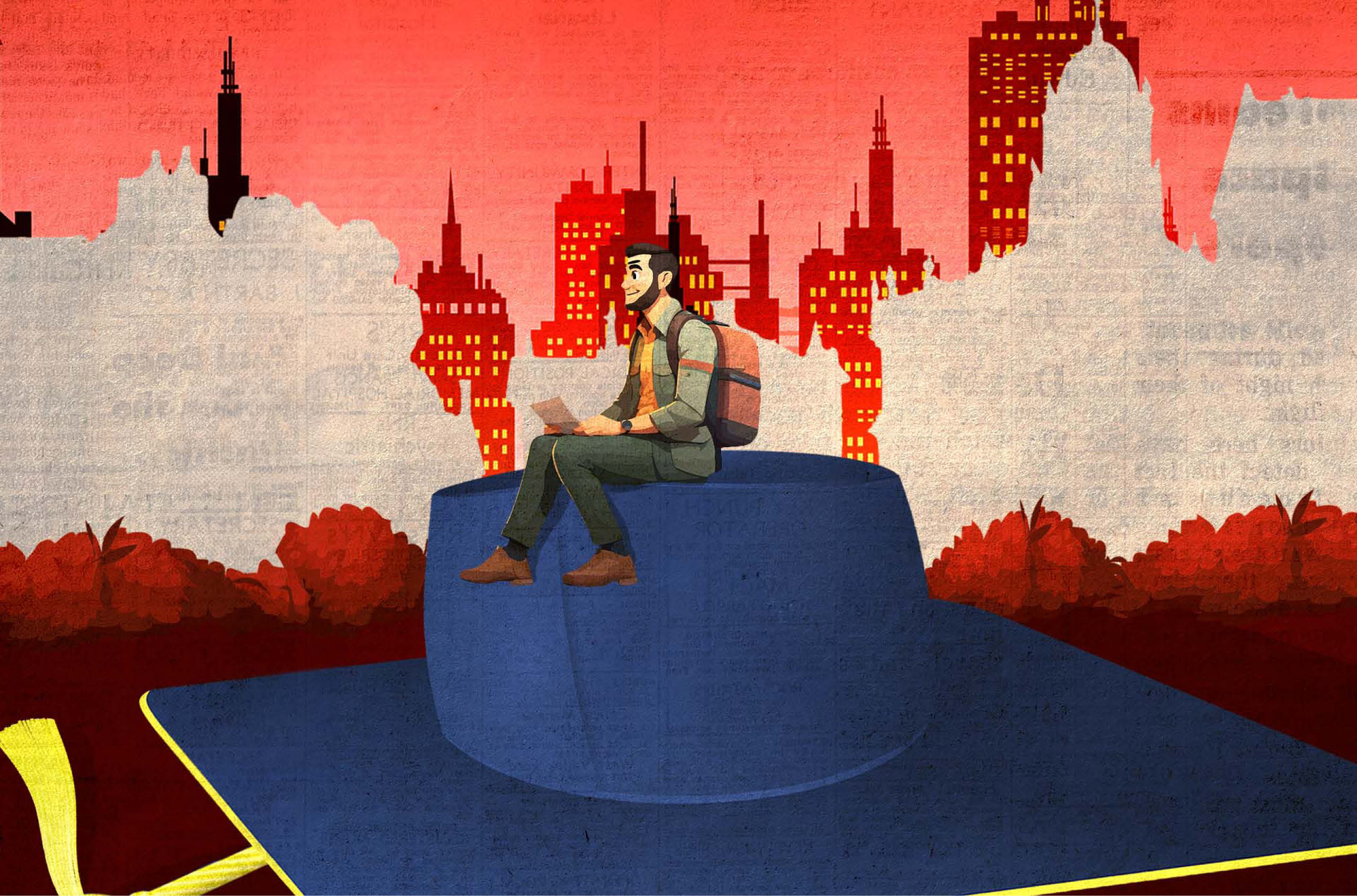
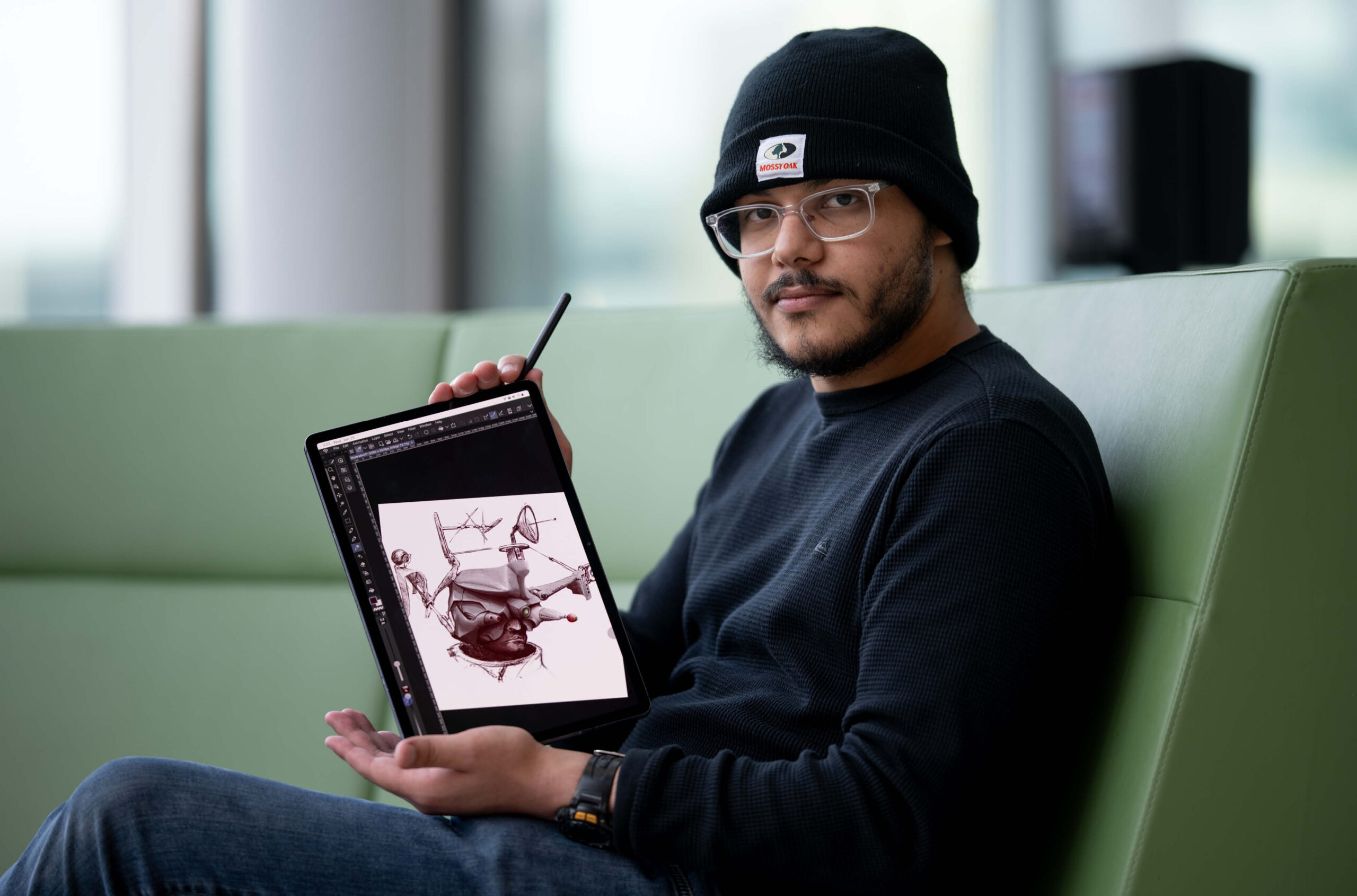


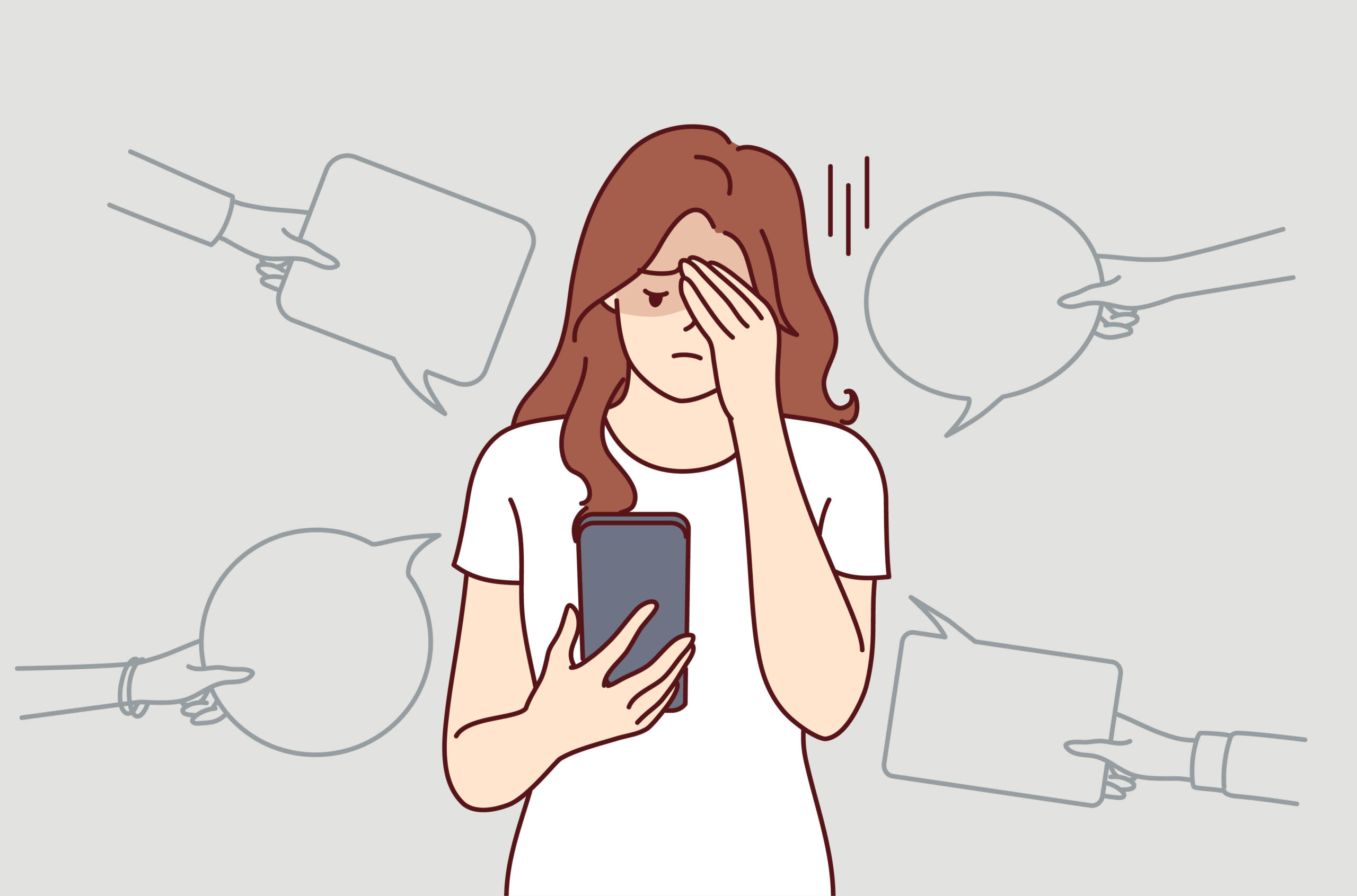
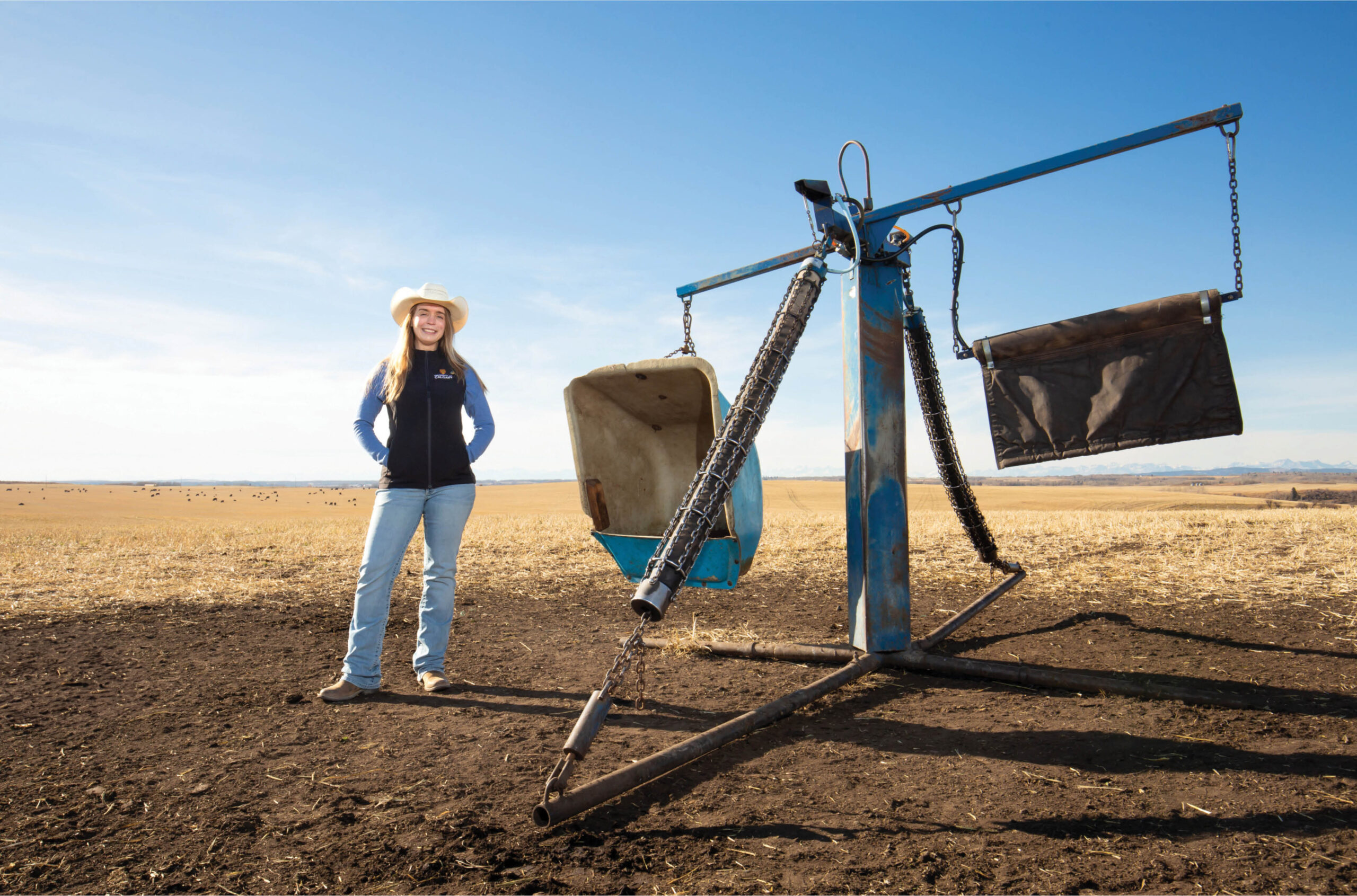
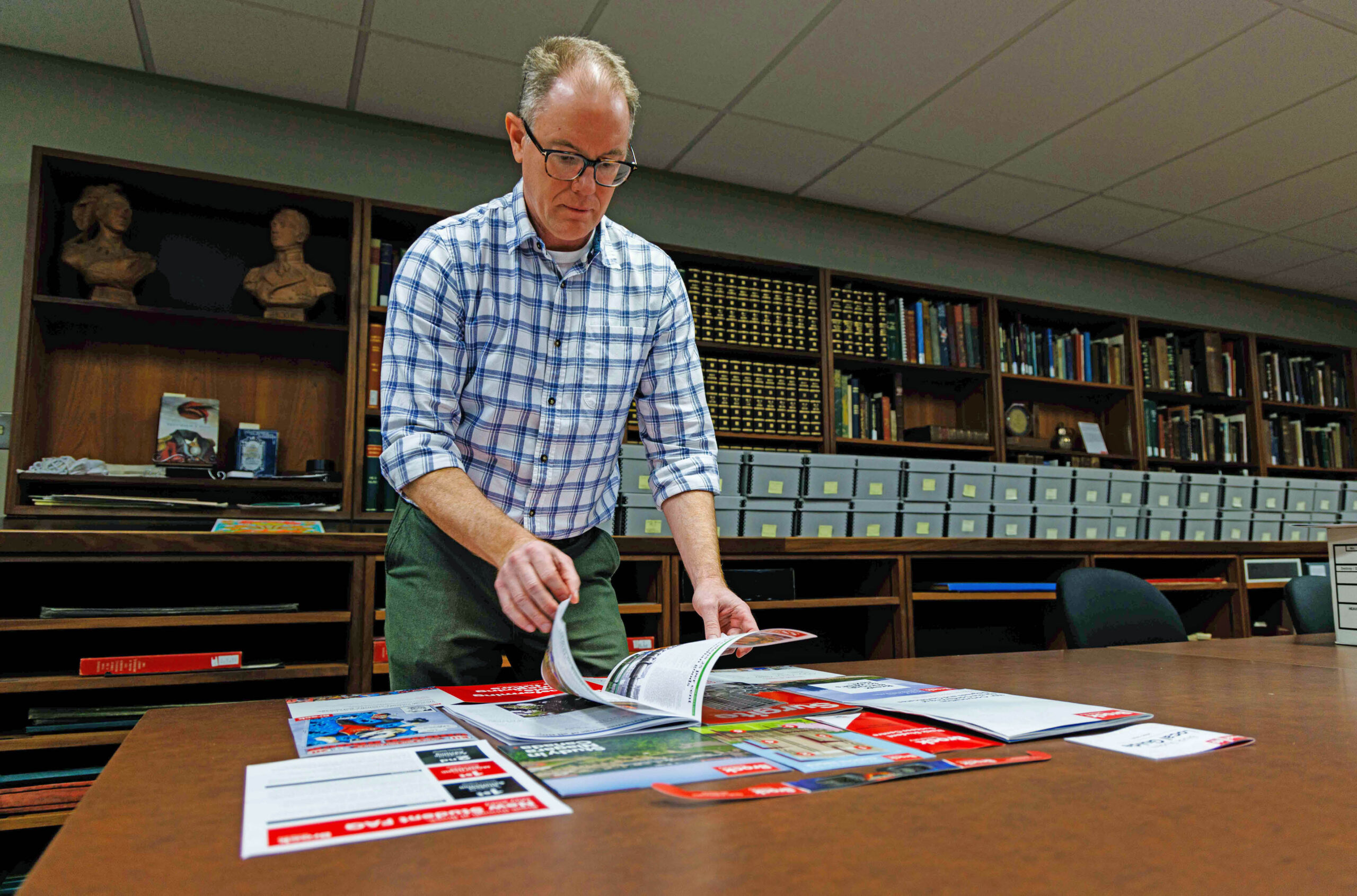
Post a comment
University Affairs moderates all comments according to the following guidelines. If approved, comments generally appear within one business day. We may republish particularly insightful remarks in our print edition or elsewhere.